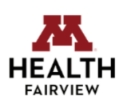Minnesota public health and policy data
About Us
The Minnesota Electronic Health Record Consortium is a partnership between Minnesota health systems and public health agencies to provide timely and granular data to inform the real-time actions of policymakers, health system leaders, and researchers. We focus on informing health policy and practice through comprehensive data and collaboration.
COVID-19 Vaccinations
In partnership with the MN Dept of Health, the MN EHR Consortium reports on COVID-19 incidence, testing, and vaccinations by race, ethnicity, and other social determinants of health to inform outreach efforts to underserved populations.
Connect With Us
Connect with Consortium leaders and members to learn more about our work, discuss potential partnerships, and learn about the project proposal submission process.
Improving Data,
Improving Public Health
The MN EHR Consortium is a partnership between health systems and public health agencies working to provide comprehensive data to inform the real-time, changing needs of decision makers. We excel at:
- Providing rapid, data-informed responses to new questions of public health interest
- Keeping a focus on equity and the social factors that impact the health of our communities
- Prioritizing data privacy and protection of patient health information

About Our Partners
The Consortium currently operates as a distributed data network, using summary data contributions from Minnesota’s largest health systems to answer important public health questions. We are open to collaborating with additional clinics and systems in the future.
Latest News
News and highlights from Minnesota EHR Consortium.
Case Study About MNEHRC
The MN EHR Consortium joined the Common Health Coalition in October 2024. The Coalition recently released a case study about the MN EHRC which highlights our data-driven collaboration and how we are breaking down data sharing barriers in Minnesota.
Report Released Describing the Impact of the 2021 Telehealth Act Available
A newly released report by MDH’s Health Economics Program (HEP) describes the impact of the 2021 Minnesota Telehealth Act (Laws of Minnesota 2021, chapter 7, article 6), which expanded access to telehealth in Minnesota and extended payment parity to include audio-only telehealth visits. The report recommends supporting the broad availability and use of telehealth as a tool to deliver health care services and summarizes findings on health care access, quality and outcomes, satisfaction, costs, and equity. It includes nine recommendations for continuing and strengthening the availability and accessibility of telehealth in Minnesota.
The MN Electronic Health Records Consortium contributed Supplement B to the report. It uses electronic health record data to analyze outpatient use of telehealth and prevalence of audio-only and audio-visual telehealth use from 2018 to 2022, as well as telehealth's impact on quality of care.
The report and its supplements are available at Minnesota Study of Telehealth Publications - MN Dept. of Health (state.mn.us).
Minnesota Health System Implementation Core June 2024 Progress Report
This report summarizes the processes and accomplishments of an initial Planning Phase for the Minnesota Health System Implementation Core, an initiative developed and organized by the Minnesota Electronic Health Record Consortium (MNEHRC). This work was funded by the Minnesota Department of Health with a program award from the Centers for Disease Control and Prevention.
MN EHRC healthcare systems were invited to establish an Implementation Core. The goal of the Implementation Core is to collaboratively expedite the translation of evidence-based interventions into everyday practice across health systems in Minnesota to improve community health. As part of its strategy to achieve this, the Implementation Core will use and act on the robust data generated through the MNEHRC’s most ambitious project to date, Health Trends Across Communities in Minnesota (HTAC). HTAC uses timely and granular information from electronic health records on chronic disease, substance use, mental health, infectious disease, and socio- and environmental-health issues to enhance the information available to health professionals, organizations, policymakers, and community members in Minnesota.
The Implementation Core is inspired by a community-of-solution approach and is guided by principles and practices of organizational and community engagement. We seek to use the experience of researchers, frontline clinicians, operational leaders, public health professionals, local organizations, and other people working to improve health in their local communities to inform and guide this work. The Implementation Core aims to foster long-term collaboration over multiple projects. Its spirit is that of learning – from literature, others, and each other.












